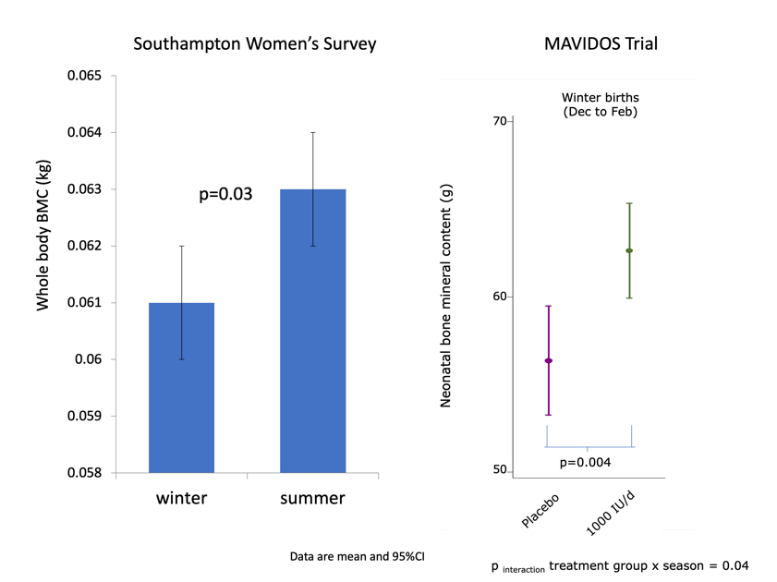Central to our intervention work is our original observation that low maternal vitamin D status during pregnancy is associated with reduced offspring bone mass in childhood. We subsequently demonstrated that women randomised to vitamin D supplementation in pregnancy have offspring with greater bone mass at birth (for winter deliveries) than do women randomised to placebo (MAVIDOS trial), consistent with the observation in the Southampton Women’s Survey that winter births have lower bone mineral content than do summer births [Figure]. Furthermore gestational vitamin D supplementation influences perinatal epigenetic marking of the RXRA gene, a key part of vitamin D signalling, and also associated with offspring bone mass. Follow-up at 6-8 years of children born to the MAVIDOS trial is ongoing, funded by Versus Arthritis. We seek replication of the original MAVIDOS birth findings through the SPRING trial, in which the vitamin D/placebo intervention of MAVIDOS is reproduced in a factorial design with further randomisation to Healthy Conversation Skills behaviour change intervention or usual care. These intervention trials, together with the Southampton Women’s Survey provide the basis for mechanistic studies.

